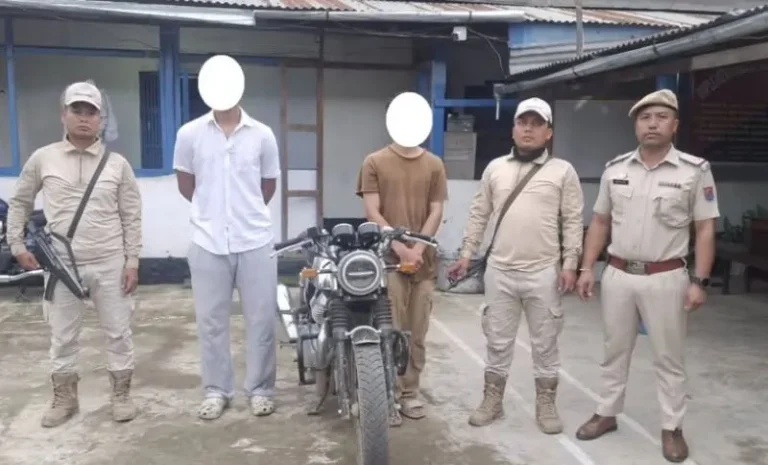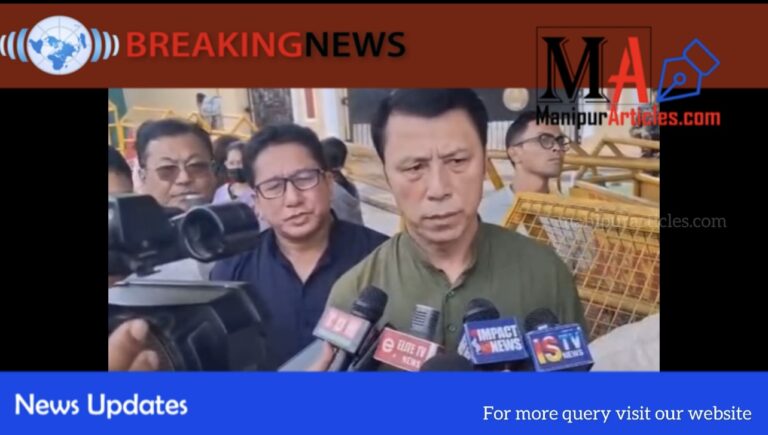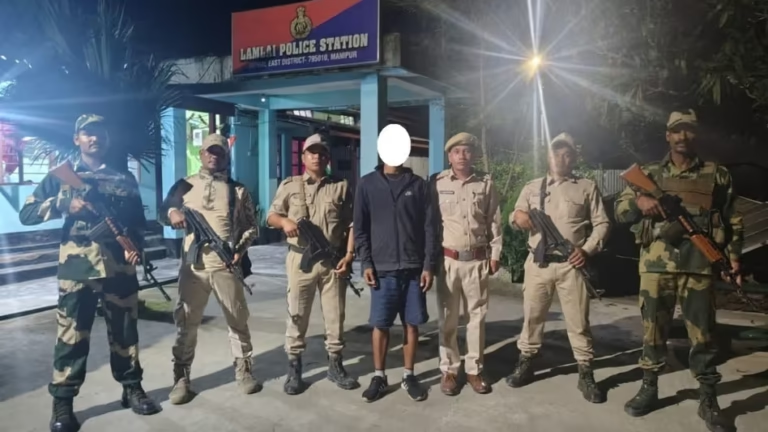Manipur’s Arambai Tenggol Surrenders Weapons to Gain Sympathy from Kuki-Zo Organisations: Unpacking the Controversial Move
Introduction
Have you ever wondered what drives someone to make a dramatic political statement by putting down arms? In Manipur, a region steeped in history, ethnic dynamics, and ongoing conflicts, Arambai Tenggol’s recent decision to surrender weapons has ignited a firestorm of debate. This isn’t just about disarmament; it’s a calculated move aimed at winning the favor of Kuki-Zo organisations, groups that hold significant sway in the local socio-political landscape. Today, we’ll dive deep into this controversial decision, unpack its motivations, and explore what it might mean for regional stability and future disarmament drives.
Understanding the Arms Surrender Context
Before we get into the heart of the matter, let’s set the stage. Arms surrender drives have long been seen as crucial steps towards peace and stability in conflict-ridden regions. They are opportunities for those involved in militancy or illegal arms possession to step away from violence and embrace a path of reconciliation. However, when such a move is intertwined with political calculations, the lines between genuine disarmament and strategic maneuvering can blur.
In Manipur, where history and ethnicity mix in complex ways, the surrender of weapons is not merely a safety measure—it’s a potent symbol. It speaks to the possibility of transformation, of turning a page on a violent chapter, and of reaching out for new alliances. But as with any powerful symbol, its meaning can be interpreted in many ways.
Who is Arambai Tenggol?
Let’s talk about the man at the center of this story. Arambai Tenggol is a figure whose name has become synonymous with both controversy and hope, depending on whom you ask. Although his background is layered with the complexities typical of Manipur’s turbulent political landscape, Tenggol is seen by some as a reformist willing to make difficult choices to reshape his future and that of his community.
Is he a true peacemaker or a shrewd strategist playing the political game? That question is at the core of the current debate. Tenggol’s decision to surrender weapons appears to be more than a gesture of goodwill—it’s a calculated move designed to win sympathy from the Kuki-Zo organisations, who have considerable influence over regional dynamics. By aligning himself with these groups, Tenggol might be positioning himself as a key player in the evolving balance of power.
The Surrender: A Strategic Move or Genuine Gesture?
When we talk about surrendering arms, images of dusty battlefields and desperate calls for peace often come to mind. Yet, in this instance, the act of surrendering weapons by Arambai Tenggol is laden with strategic intent. It’s as if he’s saying, “Look, I’m ready to put down arms—not out of fear or defeat, but to show my commitment to a new alliance with the Kuki-Zo organisations.”
This move can be compared to a high-stakes chess game where each piece is sacrificed to achieve a larger goal. The weapons, in this scenario, are not just tools of violence; they have become tokens of political currency. By handing them over, Tenggol may be hoping to signal his willingness to align with certain power brokers and to secure their backing, which could prove vital in future political negotiations.
Who Are the Kuki-Zo Organisations?
Now, you might ask, “Why all the focus on the Kuki-Zo organisations?” These organisations are not just any groups—they are influential community-based bodies that have played a pivotal role in the socio-political narrative of Manipur. Their support can tip the scales in local governance, community support systems, and even in resolving conflicts.
Kuki-Zo organisations have historically been involved in advocating for the rights and welfare of their communities. Their sympathy and backing carry weight, and aligning with them can provide significant political leverage. Tenggol’s move, therefore, is not simply about disarmament—it’s a bid to secure the goodwill of these influential groups and, by extension, the support of a larger segment of the population.
Political and Social Implications
What does this mean for the region? The implications are vast and multifaceted. On the political front, Tenggol’s decision could lead to a reshuffling of alliances. If his move is seen as genuine, it might encourage other militant groups or individuals in possession of illegal arms to follow suit, leading to a broader disarmament campaign. On the other hand, if critics view the act as nothing more than a calculated ploy to gain political mileage, it could deepen existing mistrust between different communities.
Socially, the act of surrendering weapons has the potential to serve as a healing gesture, offering a path away from the cycle of violence. However, it also risks being misinterpreted if not backed by concrete actions and reforms. For communities that have long suffered the consequences of armed conflict, the hope is that such a move will lead to tangible improvements in safety and quality of life.
The Symbolism Behind Surrendering Weapons
Symbols carry power. In many cultures, the act of laying down arms is a powerful metaphor for choosing peace over conflict. In Manipur, this symbolism is especially poignant. The surrendered weapons represent not just the end of hostilities, but also a break from the past—a chance to rebuild trust and foster a sense of unity.
However, when the surrender is viewed through a political lens, the symbolism becomes more complex. It may be seen as a calculated step intended to curry favor rather than a purely altruistic gesture. Is Tenggol’s surrender a genuine bid for peace, or is it a strategic move designed to secure political alliances? The answer may lie somewhere in between, reflecting the intricate realities of conflict resolution in regions with deep-rooted histories of mistrust and division.
Community Reactions and Debates
The public reaction to Tenggol’s move has been mixed, as you might expect. Some community members have welcomed the decision, viewing it as a necessary step towards disarmament and lasting peace. They see it as a brave act that could pave the way for broader social and political reforms. For them, every weapon surrendered is a victory against the forces of violence and instability.
Others, however, remain skeptical. Critics argue that the timing and nature of the surrender suggest ulterior motives. They question whether the move is intended solely to win sympathy from the Kuki-Zo organisations rather than to foster genuine peace. This skepticism is understandable in a region where political gestures are often intertwined with strategic calculations, and where trust has been eroded by years of conflict.
Motives Behind the Move: Sympathy or Strategy?
Let’s delve deeper into the possible motives behind Tenggol’s decision. Could it be that he genuinely believes in the power of disarmament to transform communities? Or is it a strategic maneuver aimed at securing a foothold within the influential circles of the Kuki-Zo organisations? Perhaps it’s a bit of both.
In regions marked by prolonged conflict, the line between genuine peace initiatives and political strategy often becomes blurred. Tenggol’s surrender might be an attempt to rebrand himself as a peacemaker—someone willing to leave behind a legacy of violence in favor of dialogue and cooperation. At the same time, by aligning with the Kuki-Zo organisations, he could be positioning himself for future political relevance, ensuring that he remains a key player in the region’s power dynamics.
It’s important to remember that in politics, especially in areas with a history of conflict, actions are rarely black and white. There can be layers of meaning behind a single decision, and only time will tell whether Tenggol’s move will be remembered as a genuine act of peace or a calculated political strategy.
Potential Impact on Regional Security
From a security standpoint, the surrender of weapons is a double-edged sword. On one hand, removing arms from circulation can lead to a significant reduction in violent incidents. Fewer weapons mean fewer opportunities for conflict, potentially paving the way for a more stable and secure environment. Imagine a community where the tools of violence are replaced with symbols of hope—this is the ideal outcome that many hope for.
On the other hand, if the surrender is perceived as a political maneuver rather than a sincere step towards peace, it could create loopholes. Critics might argue that while the weapons are gone, the underlying issues of distrust and power struggles remain unaddressed. This could lead to further polarization and even spark new conflicts if different factions feel that their interests are being sidelined.
Historical Parallels and Lessons Learned
History has shown us that disarmament and reconciliation processes are often fraught with challenges. There have been instances in various parts of the world where the surrender of weapons was used as a political tool, only to later lead to further tensions. In the context of Manipur, past experiences with disarmament drives provide valuable lessons. They remind us that while the act of surrendering arms is symbolically significant, it must be accompanied by genuine reforms and sustained dialogue.
Looking back, many successful disarmament initiatives have hinged on building trust between conflicting parties. They have required robust support systems, transparent processes, and most importantly, a commitment to addressing the root causes of conflict. As Manipur embarks on this new phase of its disarmament journey, it will be crucial for all stakeholders to ensure that the spirit of peace is maintained even as political strategies come into play.
What This Means for Future Disarmament Initiatives
The extension of disarmament efforts and the strategic moves by figures like Tenggol could have long-lasting effects on how future arms surrender drives are conducted in the region. If Tenggol’s move is successful in winning the sympathy and support of influential groups, it might set a precedent for others to follow. However, it also places a greater burden on the authorities to ensure that disarmament is not reduced to a mere political tool.
Future initiatives will need to focus on creating an environment where the act of surrendering weapons is both safe and celebrated as a step towards a better future. This includes investing in community outreach, ensuring transparent processes, and providing support to those who choose to disarm. Only then can the true benefits of disarmament be realized—benefits that extend beyond immediate security and foster long-term social and economic development.
The Road Ahead: Challenges and Opportunities
Looking forward, the decision by Arambai Tenggol and the broader implications of this move open up a host of challenges and opportunities for Manipur. The region stands at a crossroads where the choices made now could shape its future for decades to come. Will this move pave the way for lasting peace and reconciliation, or will it deepen existing divides?
One of the biggest challenges will be ensuring that all segments of society buy into the disarmament process. This requires constant dialogue, transparent implementation, and a commitment from all stakeholders to work together for the common good. On the opportunity side, there is tremendous potential for transforming Manipur into a model of peace and stability—a place where the scars of the past are healed through concerted efforts at reconciliation and reform.
Conclusion
In conclusion, the surrender of weapons by Manipur’s Arambai Tenggol—purportedly aimed at winning sympathy from Kuki-Zo organisations—is a multifaceted move that resonates on political, social, and symbolic levels. Whether viewed as a genuine step toward peace or as a strategic maneuver in a complex political landscape, its impact will be felt for years to come. This initiative, with its potential to reshape regional security and community trust, serves as a powerful reminder of the delicate balance between political strategy and the pursuit of lasting peace. Only time will reveal the true legacy of this bold move, but one thing is clear: in Manipur, the journey toward disarmament is as much about winning hearts and minds as it is about reducing the number of weapons on the streets.
FAQs
- What was the main reason behind Arambai Tenggol’s decision to surrender his weapons?
Tenggol’s move appears aimed at gaining the sympathy and support of influential Kuki-Zo organisations, positioning himself as a peacemaker and a strategic political player in the region. - How can the surrender of weapons impact regional security in Manipur?
Removing illegal weapons from circulation can reduce the likelihood of violent conflicts, foster a safer environment, and potentially lead to broader disarmament efforts if combined with genuine reforms. - Who are the Kuki-Zo organisations, and why is their support significant?
Kuki-Zo organisations are influential community-based groups in Manipur whose support can greatly sway regional politics and social dynamics, making their sympathy crucial for any political maneuver. - What challenges might arise from using disarmament as a political strategy?
While disarmament is vital for peace, if used solely as a political tool it may deepen mistrust, leave underlying conflicts unresolved, and potentially polarize communities further. - What steps can be taken to ensure future disarmament drives are successful?
Future initiatives should focus on transparent processes, community outreach, robust support systems, and addressing the root causes of conflict to ensure that disarmament leads to lasting peace and development.




